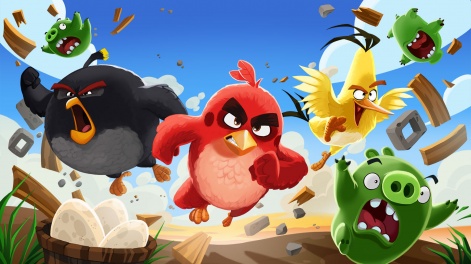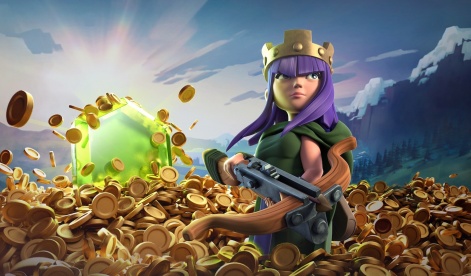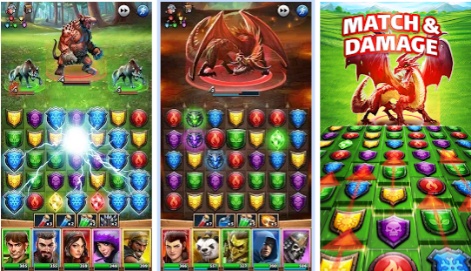In the Western games industry, the country that has perhaps capitalised most on the booming mobile space is Finland.
In the early years of the app stores, the country - and in particular Helsinki, though not exclusively - was home to an array of big-name start-ups.
The country’s superstar Supercell would, after a failed cross-platform MMORPG named Gunshine, go on to churn out billion-dollar hits Hay Day, Clash of Clash, Boom Beach and Clash Royale.
It wasn’t the only game in town though. Hill Climb Racing dev Fingersoft has since grown into a highly successful studio and publishing label (through Round Zero), Seriously sales grew 65 per cent year-on-year in 2018 to $69m, Next Games found success from The Walking Dead: No Man’s Land, and Futureplay has made a name for itself with its idle games and most recently Battlelands Royale.
That’s not to forget the likes of Rovio - which has transformed itself into a free-to-play business thanks to the success of Angry Birds 2.
The team at Remedy Entertainment too have long established themselves as experts in story-driven adventures, while Housemarque has developed a number of hit arcade titles and Colossal Order continues to work on the successful Cities: Skylines.

Big publishers have set up shop in the country too, with Ubisoft RedLynx, Wargaming Helsinki, EA Tracktwenty and Zynga’s own Helsinki studio working on FarmVille 3 all set up in the country (not to mention that publisher's acquisition of Small Giant Games).
Then there are the likes of Critical Force, Dodreams, Cornfox & Brothers, Bugbear Entertainment, Frozenbyte, Frogmind, Kopla Games, Kukouri Mobile Entertainment, MotionVolt Games, Nitro Games… the list goes on.
Revenue decline
In 2018 the Finnish games industry generated around €2.1 billion in revenue. While impressive that’s actually a decline from the €2.5 billion it was valued at in 2016.
As we’ve previously reported, that decline has coincided with Supercell’s decreasing sales, which claimed $1.6 billion in revenue in 2018, down from roughly $2bn in 2017 and $2.3bn in 2016.
In 2015 Supercell took a whopping 88 per cent share of total turnover, while in 2018 that fell to 65 per cent - still a two-thirds share of the Finnish games market.
In its report on the state of Finland’s games sector, industry association Neogames said that despite the decline, the country’s games sector was becoming less reliant on Supercell to power sales.
In 2015 the studio took a whopping 88 per cent share of total turnover, while in 2018 that fell to 65 per cent - still a two-thirds share of the Finnish games market.
Last year, Kuuhubb chief strategist Tero Kuittinen said that the decline was a sign of something wrong with the Finnish industry - that it had become an emblem of mobile games industry stagnation. He highlighted the successes of Pokemon Go and Fortnite, providing entirely new experiences, something that, he argued, much of the industry has struggled to offer.
It’s fair to say a few studios have struggled in recent times, including Next Games, which had a difficult launch for The Walking Dead: Our World; Grand Cru, which is looking to a new future beyond Supernauts and Battlejack; and Armada Interactive, which cancelled its debut strategy title Quantum Siege last year.
But there are plenty of signs that the Finnish games industry is picking itself back up - not that it had fallen on particularly tough times.
The successful launch of Brawl Stars in December 2018 - which as of June 2019 was estimated to have quickly generated $275m, combined with the successful implementation of Season Challenges in Clash of Clans - could help push Supercell’s sales once more. Though that will depend on how its other titles are still performing.

Then there’s the new heavyweight Small Giant Games. The company was picked up by Zynga in December 2018 for $560m upfront, with the remaining 20 per cent of company shares to be acquired over three years as an earnout based on future profitability. The studio initially had a flop on its hands with Oddwings Escape, but - much like the Finnish industry - picked itself back up with match-three RPG Empires & Puzzles, a smash-hit success.
Small Giant Games initially had a flop on its hands with Oddwings Escape, but it picked itself back up with match-three RPG Empires & Puzzles, a smash-hit success.
Zynga’s other Helsinki studio is also at work on the soft-launched FarmVille 3 - Animals. It’s too early to tell whether it will see a global release, but a big comeback for the IP could prove another success story made in Finland.
Rovio grew its revenue in H1 2019 by 7.8 per cent, though that hides a decline of three per cent in Q2. While Angry Birds Dream Blast has gross bookings of €14 million, making it Rovio’s second-largest game, its flagship title Angry Birds 2 declined year-on-year in Q2 from €29.7 million the year prior to €26.5 million.
Rovio blamed “much lower” UA investments in the game. Still, the company has just released The Angry Birds Movie 2 - which could prove a big boon for the company.
Maturing industry
One thing you may have noticed from many of the studios mentioned above is the fact that none of these are exciting new start-ups.
New companies are still finding investment in Finland - take Shipyard Games for example, which can count Supercell as a backer - but it’s hardly the hotbed of exciting start-ups it once was. And that’s despite a rise in the number of new studios in 2017 to 2018 (48), compared to 45 in 2015 to 2016.
Instead, much like the mobile games industry at large, Finland’s games sector has matured. The number of studios in the country decreased from 250 in 2016 to 220 in 2018, but at the same time there was a 16 per cent rise in the number of people employed in the industry to 3,200.

And as these studios focus on live operations and wait patiently for new hits, only 100 new games were published by local companies in 2018, compared to an average of 150 to 200 games per year prior.
The number of companies making over €50m doubled to four in 2018 from 2016, while the new of developers generating more than €10m grew from seven to 11, and the number making over €1m was 34, up from 30.
It’s no longer the start-up capital of the Western games industry, but the talented Finns have been able to turn a few of those into big success stories.
There’s been a flurry of M&A activity in recent years - Tencent acquiring Supercell, Wargaming snapping up Boomlagoon, Zynga buying Small Giant and Supercell’s acquisition of a 51 per cent stake in Badland and Rumble Stars developer Frogmind.
A few companies have gone public too - Rovio, Next Games, Remedy Entertainment and Nitro Games (the latter in Sweden). Of those, Next Games, Nitro Games and Rovio all tanked, though the latter has picked itself up since the start of the year.
Remedy has gone from strength to strength - recently hitting a high of 10.65 euros per share. That came off the back of a 49.6 per cent growth in revenue to 13,799,000 euros for the first six months of 2019, while operating profit increased 10.6 per cent to 1,461,000.
With talk of IPOs, big M&A and a country with a growing number of mid-sized studios, Finland’s industry has certainly transformed over the last few years. It’s no longer the start-up capital of the Western games industry, but the talented Finns have been able to turn a few of those into big success stories.
You can discover more about the Finnish games industry at Pocket Gamer Connects Helsinki, which heads to Finland on October 1st and 2nd later this year.






















